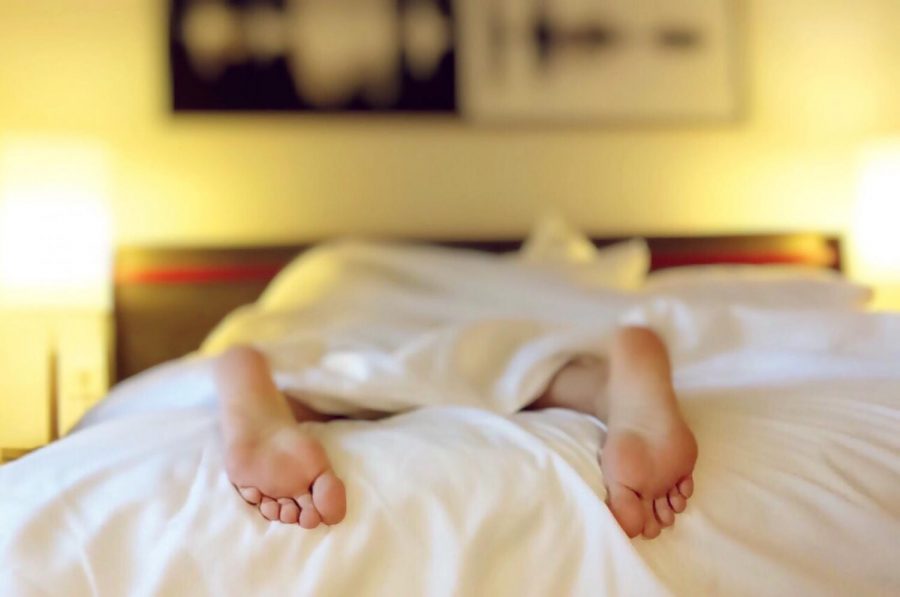Raise Your Hand If You Can’t Sleep
Major studies have proven that teens are sleep-deprived.
Photo by Creative Commons
Studies have proven time and time again that teens are not getting enough sleep. What causes this common issue for so many of us?
How much sleep would you say you get every night? 4, maybe 7 hours? After talking to students, the common excuse is that they were up all night studying for a big test, or watching TV. They weren’t tired so they just stayed on their phone all night because, why not?
Sound familiar? After waking up from your “nights rest”( If you got any sleep at all), you drink some coffee or eat sugary foods and head off to school. The cycle repeats once you find yourself at home with more homework and TV to watch. One student exclaimed, “ Last night I was doing homework until like 2am, then I went to sleep at about 3.” Students also spoke about times when they were doing practice for a dance, team or play, and did not get to sleep until late at night.
You probably already know that this is harmful to your health. You’ve heard the common spiel about how you won’t preform correctly at school, how you’ll most likely experience mood swings, etc. What you may not know is that this lifestyle, even if only during the week, can cause you to quickly gain weight, and can literally damage your brain for the rest of your life.
According to a study done by the Sleep Foundation, people with obstructive sleep apnea were five times more likely to suffer from clinical depression than those who slept regularly. This means not getting a full night of sleep can actually cause you to become severely sad all the time, no matter how much coffee you drink. Mood swings are also a common effect of not getting enough sleep.
In addition, not getting enough sleep was considered a form of torture throughout history, starting as early as the 16th century (During the Scotland witch trials), and as recently as 2006 (Used by the US military). Torture victims experienced symptoms such as hallucinations, paranoia, and disorientation. In other words, schizophrenic symptoms. Since it would be unethical to test the relationship between sleep deprivation and death among humans, the closest scientists have gone is using lab rats. Compared to rats given normal amount of sleep, sleep deprived rats showed an increased metabolic rate and increased food intake.
In 1965, a high school student stayed awake for 264 hours (about 11 days) for a science fair project. By the end of his experiment, he was described as a vegetable with his eyes open. While these are obviously really radical examples, the point is that sleep is incredibly important, even if it’s inconvenient. In addition, a study preformed in 1999 showed that lack of sleep ultimately suppressed growth hormones among adolescents.
Believe it or not, taking naps throughout the day is a really good way to keep yourself up at night. By sleeping at odd times of the day, you’re are throwing off your brain’s natural ability to detect nighttime, therefore making it harder to fall asleep at the correct times. According to Nationwide Children’s, the average teen gets 7 to 7 1/2 hours if sleep each night, out of the recommended 9 to 9/12 hours that are recommended. Moral of it all, make sure to make time to sleep! Even if you really don’t want to. Otherwise, many aspects of your life can suffer.

Grade 9
“My mission in life is not merely to survive, but to thrive; and to do so with some passion, some compassion, some humor, and some style”
~Maya...






